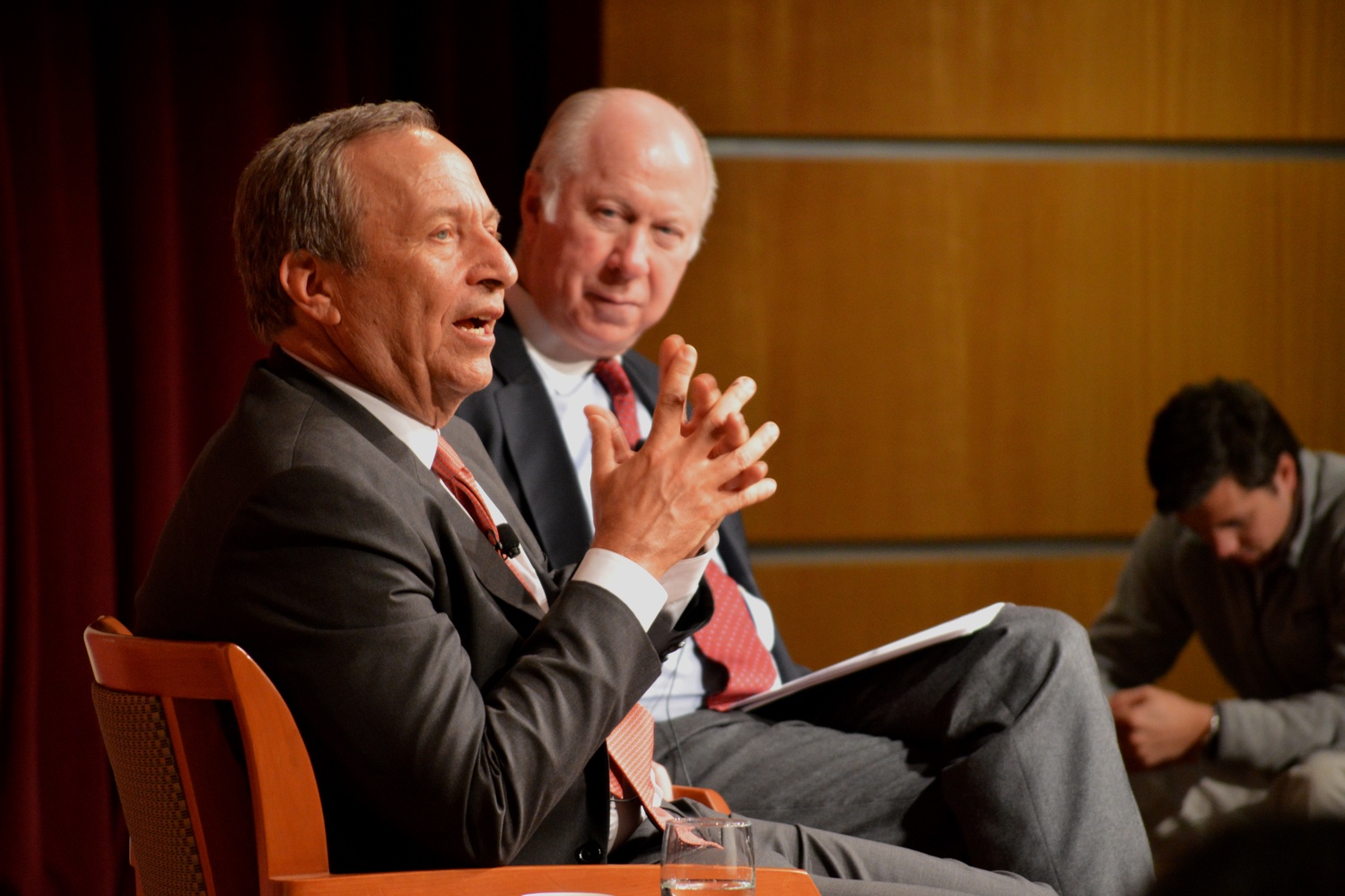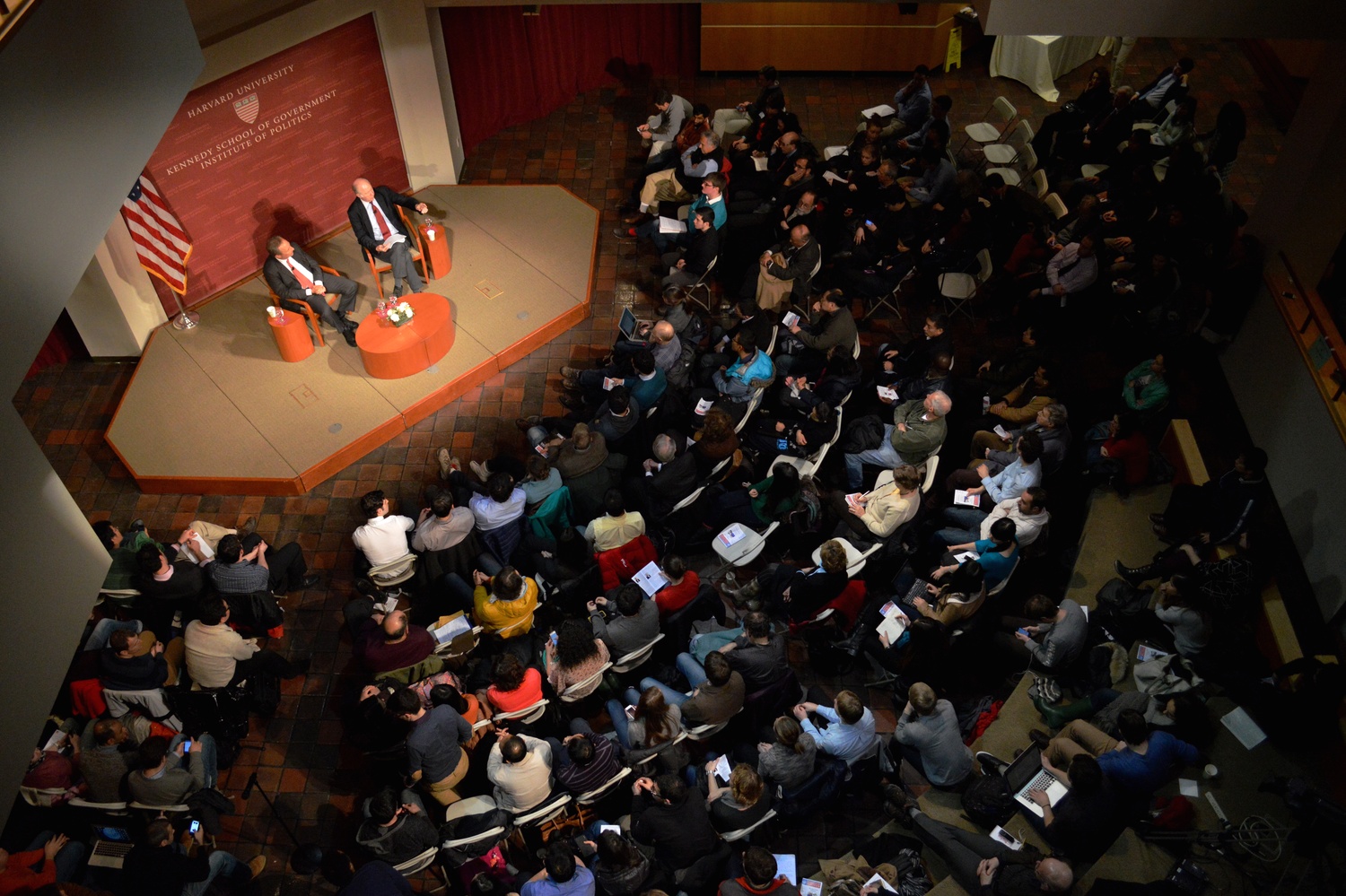
News
Summers Will Not Finish Semester of Teaching as Harvard Investigates Epstein Ties

News
Harvard College Students Report Favoring Divestment from Israel in HUA Survey

News
‘He Should Resign’: Harvard Undergrads Take Hard Line Against Summers Over Epstein Scandal

News
Harvard To Launch New Investigation Into Epstein’s Ties to Summers, Other University Affiliates

News
Harvard Students To Vote on Divestment From Israel in Inaugural HUA Election Survey
U.S. Recovery Unsatisfactory, Summers Says at IOP

Despite positive efforts, the American economy has not had a satisfactory recovery, former U.S. Treasury Secretary Lawrence H. Summers told an audience at the Institute of Politics Thursday evening.
“We did the right things and we avoided a depression in 2009 and that is hugely important and satisfying,” Summers, who aided the Obama administration's response to the recession and is a former president of the University, said. “But if you look at economic growth since 2009, it’s slower than the potential of the American economy to grow given population and given technological change.”
Summers, drawing on his experiences at the Treasury and as Director of the National Economic Council and Chief Economist for the World Bank, reinforced his hypothesis of secular stagnation—the idea that economic recovery leading to full employment and financial stability might require expansionary policies.
In his speech, which was moderated by former presidential adviser and current director of the Center for Public Leadership at the Kennedy School of Government David R. Gergen, Summers stressed the importance of looking toward a positive future.
Addressing the upcoming election, Summers said in an interview that he anticipates the main economic issue of 2016 will be “jobs that provide for strong and rising standards of living for regular people.”
Additionally, Summers spoke about the potential for technological advances to be a defining aspect of economic change.

“I think that issues around technology are going to define either this generation or this century,” he said. “The potential for technology to augment or substitute for a good deal of what we do is something that I think we have to look into.”
Summers recently made headlines for withdrawing his name from being considered as the Chairman of the Federal Reserve, a position that Gergen, in a CNN article, called the “second most powerful job in the United States.” Summers now serves as the Charles W. Eliot University Professor, but said he still thinks he can influence the fate of the U.S. economy for his post.
“Working as an economist in a University, I hope that by being part of the public discussion, by trying to suggest concepts and ways of thinking about ongoing economic events, I may be able to make a contribution by introducing or putting forth ideas,” Summers said in an interview before the event.
Gergen said that he feels strongly that, in the years to come, the American public will feel Summers’ impact on the economy.
“I think for a long, long time, this country and the world will look to Larry Summers as the wise man of economics” Gergen said.
—Staff writer Forrest K. Lewis can be reached at forrest.lewis@thecrimson.com.
Want to keep up with breaking news? Subscribe to our email newsletter.
